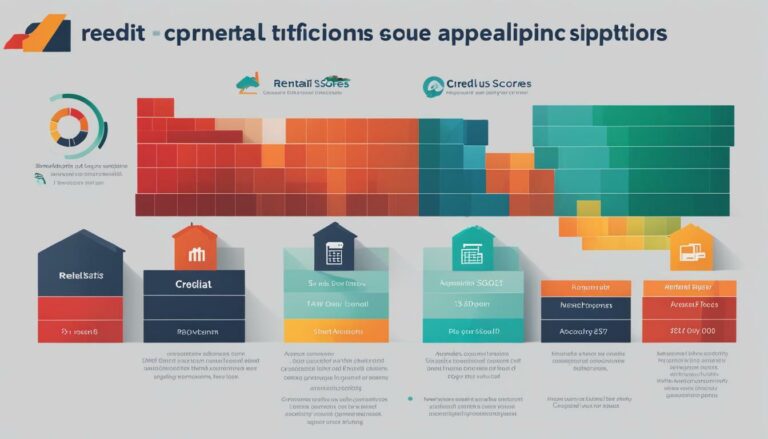Understanding Credit Scoring for Non-Residents in the U.S.

Credit scoring is a vital aspect for non-residents in the U.S. who wish to establish credit history and financial stability in the country. It plays a crucial role in determining loan eligibility, interest rates, and even rental agreements. However, for non-residents who are unfamiliar with the U.S. credit system, navigating the credit scoring process can be challenging.
Three major credit bureaus in the U.S. – Experian, TransUnion, and Equifax – track credit scores and provide free credit reports. This information is essential for non-residents to understand their creditworthiness and identify areas for improvement. Non-residents can also access credit score checkers through their financial institutions or credit card companies. These resources can help individuals keep track of their credit scores and monitor any changes over time.
In order to build credit as a non-resident, there are several strategies that can be employed. Credit cards play a crucial role in establishing a credit history. It is important to choose credit cards that have low fees, low interest rates, and do not require a social security number. This allows non-residents to access credit cards and start building their credit profiles.
Credit builder loans are another option for non-residents looking to establish credit. These loans work by allowing individuals to borrow a certain amount of money, which is then placed in a secured account. As the loan is paid off, it helps build credit history and demonstrates financial responsibility to lenders.
Rent payment services can also be utilized to build credit as a non-resident. By ensuring timely rent payments, individuals can establish a positive payment history that can be reported to credit bureaus. This positive payment history can then be used to demonstrate creditworthiness to lenders.
🚨 TUIC Errors + Low Credit Score?
CreditScoreIQ helps you build credit faster by reporting utility bills to all 3 bureaus—while you dispute errors.
Start Building Credit Today →It is worth noting that lenders are increasingly considering alternative data in credit scoring for non-residents. Factors such as bank account transactions and on-time bill payments are now being taken into account to determine loan eligibility. While this can provide more comprehensive assessments of creditworthiness, it also raises concerns about discrimination and privacy risks.
Non-residents have the option to opt-in to credit products that include alternative data. This allows them to take advantage of a more holistic credit evaluation, but it is important for individuals to weigh the potential benefits against the associated risks.
Overall, understanding credit scoring is crucial for non-residents in the U.S. By familiarizing themselves with the credit system and utilizing the available resources, non-residents can establish credit history and pave the way towards financial stability in their new home.
Key Takeaways:
- Non-residents in the U.S. need to understand credit scoring to establish credit history and financial stability.
- Three major credit bureaus – Experian, TransUnion, and Equifax – track credit scores and provide free credit reports.
- Credit cards, credit builder loans, and rent payment services are effective strategies for non-residents to build credit.
- Alternative data, such as bank account transactions and on-time bill payments, is increasingly considered in credit scoring for non-residents.
- Non-residents have the option to opt-in to credit products that include alternative data, but should consider the associated risks.
Non-residents can access their credit scores and reports through credit reporting agencies like Experian, TransUnion, and Equifax, as well as through their financial institutions or credit card companies. These credit bureaus collect and maintain information about individuals’ credit histories, which is used by lenders to assess creditworthiness. Accessing credit scores and reports is essential for non-residents in the U.S. who want to establish a credit history and gain access to financial opportunities.
Experian, TransUnion, and Equifax are the three major credit bureaus in the U.S., each with its own unique credit scoring models and data sources. Non-residents can request their credit reports from these bureaus once every 12 months for free, allowing them to review their credit history and identify any errors or discrepancies that may affect their credit scores. These reports include information such as credit accounts, payment history, and public records. Checking credit reports regularly is crucial for non-residents to ensure the accuracy of their credit information.
| Credit Reporting Agency | Website |
|---|---|
| Experian | https://www.experian.com/ |
| TransUnion | https://www.transunion.com/ |
| Equifax | https://www.equifax.com/ |
In addition to credit bureaus, non-residents can also check their credit scores through their financial institutions or credit card companies. Many banks and credit card issuers provide free access to credit scores as a service to their customers. It is important to note that credit scores may vary slightly across different sources due to variations in scoring models and data used. However, the overall credit profile and factors influencing creditworthiness are generally consistent.
Understanding credit scoring is essential for non-residents in the U.S. By accessing their credit scores and reports through credit reporting agencies or other channels, non-residents can stay informed about their creditworthiness and take necessary steps to establish and improve their credit history.
Additional Resources:
- Credit Scores – Consumer Information by the Federal Trade Commission
- Ask Experian – Credit Education and Advice
- TransUnion – Credit Education
- Equifax – Credit Education

Building Credit as a Non-Resident
Non-residents can establish credit in the U.S. by utilizing credit cards, credit builder loans, and rent payment services. These options provide opportunities for non-residents to build creditworthiness and develop a positive credit history, which is essential for future financial endeavors.
When it comes to credit cards, it is important for non-residents to choose cards that have low fees, low interest rates, and do not require a social security number. These features can make it easier for non-residents to obtain credit cards and start building their credit. By using credit cards responsibly, making timely payments and keeping credit utilization low, non-residents can demonstrate their creditworthiness.
In addition to credit cards, non-residents can also consider credit builder loans. These loans work by allowing individuals to borrow a small amount of money, which is then held in a separate account. As the borrower makes regular payments on the loan, the lender reports the positive payment history to the credit bureaus, helping to establish a credit history. This method is especially useful for non-residents who may not have extensive credit histories or established relationships with financial institutions.
Rent payment services can also play a role in building credit as a non-resident. These services allow tenants to have their rental payments reported to credit bureaus, helping to establish a positive payment history. Non-residents who are renting in the U.S. can benefit from utilizing these services, as timely rent payments can contribute to their creditworthiness.
Overall, building credit as a non-resident in the U.S. requires strategic utilization of credit cards, credit builder loans, and rent payment services. By taking advantage of these options and demonstrating responsible financial behavior, non-residents can establish a solid credit foundation and improve their chances of accessing credit products and achieving their financial goals.

| Key Considerations for Building Credit | Benefits |
|---|---|
| Choose credit cards with low fees and interest rates | – Minimize costs associated with credit card usage – Manage credit card debt more effectively |
| Look for credit builder loans that report payment history | – Accelerate credit-building process – Establish credit history without significant credit experience |
| Utilize rent payment services that report to credit bureaus | – Build credit through regular, timely payments – Demonstrate financial responsibility as a tenant |
Choosing the Right Credit Card
When choosing a credit card as a non-resident, it is crucial to consider factors such as low fees, low interest rates, and whether the card requires a social security number. The right credit card can provide access to credit-building opportunities and financial flexibility.
Look for credit cards that offer low fees to help minimize costs. Some cards may have annual fees, foreign transaction fees, or high late payment fees. By opting for a card with low or no fees, you can save money and focus on building credit.
Interest rates are another important consideration. High-interest credit cards can result in significant costs if you carry a balance, so selecting a card with a low interest rate can help you manage your finances more effectively.
Additionally, as a non-resident, it may be challenging to obtain a credit card that requires a social security number. However, some credit cards cater specifically to non-residents and do not require a social security number. These cards generally rely on alternative methods to verify your identity and determine your creditworthiness.
| Card Name | Low Fees | Low Interest Rates | No SSN Required |
|---|---|---|---|
| Card A | ✓ | ✓ | ✓ |
| Card B | ✓ | ✓ | ✓ |
| Card C | ✓ | ✓ | ✓ |

“Choosing the right credit card is an important step for non-residents looking to establish their credit history in the U.S. Consider cards with low fees, low interest rates, and no requirement for a social security number.”
Note: The table above showcases a few examples of credit cards that meet the criteria discussed. It is always recommended to research and compare different credit card options to find the best fit for your specific needs and circumstances.
Credit Builder Loans for Establishing Credit
Credit builder loans offer non-residents the opportunity to establish credit by paying off a loan stored in an account. These loans are specifically designed to help individuals build credit history, especially for those who have limited or no credit. By successfully repaying the loan over time, non-residents can demonstrate their creditworthiness and improve their credit scores.
One of the key benefits of credit builder loans is that they are accessible to individuals with little or no credit history. Traditional lenders may be hesitant to extend credit to non-residents without a credit history, making it challenging to establish credit. However, credit builder loans are specifically structured to help non-residents build credit from scratch.
When applying for a credit builder loan, individuals typically need to deposit a fixed amount into a secure savings account. This deposit serves as collateral for the loan, and the individual then repays the loan over a specified period. As payments are made on time, the lender reports this positive payment history to the credit bureaus, which helps build a non-resident’s credit profile.
It is important to note that credit builder loans may differ in terms of interest rates and repayment periods. Non-residents should carefully compare options from different lenders to find the best fit for their financial situation. By selecting a credit builder loan with favorable terms, non-residents can effectively establish credit and work towards achieving their financial goals in the U.S.
| Benefits of Credit Builder Loans | Considerations for Credit Builder Loans |
|---|---|
|
|
Summary
Credit builder loans provide a valuable opportunity for non-residents to establish credit in the U.S. By paying off a loan stored in an account, individuals can demonstrate their creditworthiness and improve their credit scores. These loans are specifically designed for individuals with limited or no credit history, offering a viable path to building credit from scratch. It is important to carefully consider the terms and conditions of credit builder loans, comparing options from different lenders to ensure the best fit for one’s financial situation. By utilizing credit builder loans, non-residents can take significant steps towards achieving their financial goals in the U.S.

Non-residents can use rent payment services to build credit by ensuring timely rent payments and having them reported to credit bureaus. These services act as intermediaries between renters and landlords, allowing for seamless and convenient rent transactions. By utilizing rent payment services, non-residents can establish a positive payment history, which is a crucial factor in credit scoring.
With rent payment services, non-residents can make rent payments online or through automated systems, ensuring that payments are made on time. The services then report these payments to credit bureaus, who include them in credit reports. This means that timely rent payments can positively impact a non-resident’s credit score, making it easier to access credit products and secure favorable terms in the future.
One notable advantage of rent payment services is the ability to track and document rent payments, providing a reliable record that can be used as proof of payment. This documentation can be crucial when applying for credit or renting future properties. Additionally, some rent payment services offer added features such as rental history verification and the option to split rent payments among roommates.
| Rent Payment Services | Key Features |
|---|---|
| Payment Platform A | Automated rent payments, credit reporting, rental history verification |
| Payment Platform B | Online rent payments, credit reporting, roommate splitting |
| Payment Platform C | Mobile app for rent payments, credit reporting, payment reminders |

“Utilizing rent payment services is a smart strategy for non-residents looking to build credit. By ensuring timely rent payments and having them reported to credit bureaus, non-residents can establish a positive payment history, which is vital for credit scoring.”
In summary, rent payment services offer non-residents a convenient and effective way to build credit. By making timely rent payments and having them reported to credit bureaus, non-residents can establish a positive payment history and improve their credit scores. These services also provide additional features such as rental history verification and roommate splitting, making the rental process more streamlined. Utilizing rent payment services is a proactive step towards building credit as a non-resident in the U.S.
Alternative Data in Credit Scoring
Lenders can incorporate alternative data, such as bank account transactions and on-time bill payments, to evaluate the creditworthiness of non-residents. This additional information allows lenders to gain deeper insights into an individual’s financial behavior and repayment patterns, especially when traditional credit history may be limited or unavailable.
Bank account transactions provide a wealth of data that can demonstrate an individual’s financial stability and responsible money management. Lenders can analyze income deposits, regular expenses, and savings patterns to assess an applicant’s ability to meet financial obligations. Access to this data gives lenders a more comprehensive view of an individual’s financial situation, which can be especially beneficial for non-residents who may not have established credit history in the U.S.
On-time bill payments can also serve as a valuable indicator of creditworthiness. Consistently paying bills, such as utilities, rent, and other financial obligations, demonstrates financial responsibility and reliability. Lenders may consider these payment patterns as an alternative measure of creditworthiness, even if an individual does not have a long credit history in the country.
| Data Type | Key Considerations |
|---|---|
| Bank Account Transactions | – Analyze income and expenses – Assess savings patterns – Evaluate financial stability |
| On-Time Bill Payments | – Demonstrate financial responsibility – Indicate reliability – Highlight consistent repayment patterns |
Lenders aiming to provide fair and inclusive credit opportunities for non-residents recognize the value of alternative data in credit scoring. By considering a broader range of financial behaviors and payment patterns, lenders can assess an individual’s creditworthiness more accurately. Non-residents can benefit from this approach, as it offers them a chance to build credit history and access credit products that may have been previously unavailable.

The use of alternative data in credit scoring for non-residents raises concerns about discrimination and privacy risks, but opting-in to credit products that include alternative data is an option to consider. While alternative data can provide lenders with additional insights into an individual’s creditworthiness, it is essential to carefully navigate the potential drawbacks and implications associated with its use.
Privacy risks: One of the primary concerns surrounding the utilization of alternative data is the potential invasion of privacy. The collection and analysis of personal data, such as bank account transactions and bill payments, raise questions about how this information is being handled and protected. Non-residents should ensure that they understand the privacy policies of the credit products they opt-in to and consider the level of risk they are comfortable with.
Discrimination: Another critical consideration is the possibility of discrimination based on alternative data. Lenders may inadvertently or intentionally discriminate against certain individuals or communities based on factors such as ethnicity, nationality, or income level. It is crucial for non-residents to be aware of their rights and protections against discrimination and to report any instances of unfair treatment.
Credit products: Opting-in to credit products that incorporate alternative data can offer non-residents a pathway to establish credit history. These products may consider a broader range of factors beyond traditional credit scoring models, providing individuals with a more comprehensive evaluation of their creditworthiness. However, it is important to carefully review the terms and conditions of these products to ensure they align with personal financial goals and needs.
By weighing the benefits and potential concerns, non-residents can make informed decisions about whether to opt-in to credit products that utilize alternative data. It is crucial to prioritize privacy, understand the risks, and utilize resources such as consumer protection agencies to address any issues that arise. Embracing alternative data responsibly can contribute to a more inclusive and accurate credit scoring system for non-residents in the U.S.

| Key Considerations | Actions to Take |
|---|---|
| Review privacy policies | Ensure understanding of how alternative data is collected, stored, and used. |
| Familiarize with anti-discrimination laws | Know your rights and protections against discrimination in credit decisions. |
| Read terms and conditions | Thoroughly review credit product terms and conditions before opting-in. |
| Monitor credit reports | Regularly check credit reports for accuracy and report any discrepancies. |
| Seek legal advice if needed | If concerns or issues arise, consult with a legal professional specializing in credit and consumer rights. |
Conclusion
Understanding credit scoring is essential for non-residents in the U.S. who want to establish credit history and financial stability in the country. Credit scores play a vital role in determining creditworthiness and eligibility for various financial products. Fortunately, non-residents can access their credit scores and reports from the three major credit bureaus – Experian, TransUnion, and Equifax. Additionally, financial institutions and credit card companies offer credit score checkers, making it easier for non-residents to stay updated on their credit profiles.
To build credit as a non-resident, it is important to consider different strategies. Using credit cards responsibly is an effective way to establish credit history. Non-residents should choose credit cards with low fees, low interest rates, and without the requirement of a social security number. Credit builder loans are another option to consider. With these loans, non-residents can demonstrate their creditworthiness by gradually paying off the loan amount stored in a dedicated account.
In addition to credit cards and credit builder loans, non-residents can leverage rent payment services. Timely rent payments can be reported to credit bureaus, helping non-residents strengthen their credit history. It is important to ensure that rent payments are made consistently and on time to maximize the benefits of this strategy.
While traditional credit data is commonly used, alternative data such as bank account transactions and on-time bill payments are increasingly being considered by lenders to evaluate loan eligibility for non-residents. However, the use of alternative data raises concerns about potential discrimination and privacy risks. Non-residents have the option to opt-in to credit products that include alternative data in credit scores, but it is important to weigh the pros and cons before making a decision.
In conclusion, understanding credit scoring and actively working towards building credit as a non-resident in the U.S. is crucial. By utilizing credit cards, credit builder loans, and rent payment services, non-residents can establish a solid credit history and improve their financial standing. It is essential to stay informed about credit scores, access credit reports regularly, and make responsible financial decisions to achieve long-term financial success.
FAQ
Why is credit scoring important for non-residents in the U.S.?
Credit scoring is important for non-residents in the U.S. as it helps them establish a credit history, which is essential for various financial transactions such as obtaining loans, renting an apartment, or applying for a credit card.
How can non-residents access their credit scores and credit reports?
Non-residents can access their credit scores and credit reports through the three major credit bureaus in the U.S. – Experian, TransUnion, and Equifax. They can also check their credit scores through their financial institutions or credit card companies.
What are some strategies for non-residents to build credit in the U.S.?
Non-residents can build credit in the U.S. by using credit cards, credit builder loans, and rent payment services. These financial tools allow individuals to establish a credit history and demonstrate their creditworthiness.
What features should non-residents consider when choosing a credit card?
When choosing a credit card, non-residents should consider features such as low fees, low interest rates, and the requirement of not needing a social security number. These factors can help non-residents effectively manage their credit and build a positive credit history.
How do credit builder loans help non-residents establish credit?
Credit builder loans allow non-residents to establish credit by paying off a loan that is stored in an account. As individuals make timely payments towards the loan, their credit score and credit history improve, making them more attractive to lenders.
How can rent payment services assist non-residents in building credit?
Rent payment services can assist non-residents in building credit by reporting their timely rent payments to credit bureaus. This helps non-residents demonstrate a history of responsible financial behavior and can positively impact their credit scores.
What is alternative data in credit scoring for non-residents?
Alternative data in credit scoring refers to additional information, such as bank account transactions and on-time bill payments, that can be used by lenders to determine loan eligibility for non-residents. It provides a more comprehensive view of an individual’s financial behavior beyond traditional credit data.
What are the considerations and concerns with alternative data in credit scoring?
The use of alternative data in credit scoring raises concerns about potential discrimination and privacy risks. It is important for non-residents to carefully review and understand the terms and conditions of credit products that include alternative data. Non-residents have the option to opt-in to these credit products if they are comfortable with the use of alternative data in their credit scores.
Ready to Improve Your Credit?
Disputing TUIC errors is step one. Step two? Boost your score by reporting utility payments with CreditScoreIQ.
Get Started Now (Only $1 Trial) →3-bureau reporting • $1M identity insurance • Dark web monitoring






